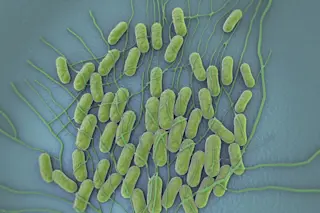A toilet in Eric Alm’s MIT lab has contributed more to microbiology than most bathrooms. For the better part of 2009, the biologist used it to collect his own feces for analysis.
The study (which also involved a colleague) may sound simple, if a little gross, but variation in intestinal microbes, known as human microbiota, is highly complex. By tracking changes to the microbiome through fecal samples, Alm hoped to learn more about how daily activities such as diet, sleep and exercise could be linked to changes in these communities of microorganisms.
It was a challenge convincing his colleagues it would be a worthwhile experiment, but once the data came in, enthusiasm grew. About halfway through, Alm learned the importance of his own diet after one meal radically altered the composition of his gut bacteria. From a scientific point of view, food poisoning made for an unexpected — but not ...















